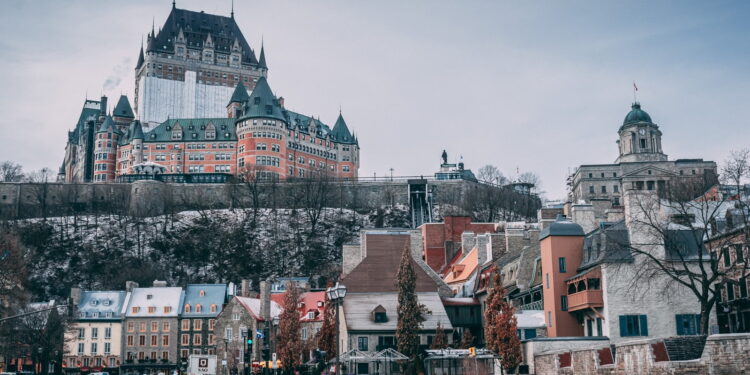One of North America’s oldest settlements, Quebec City flies under the radar. Living in the shadow of Montreal, Quebec’s largest city, Quebec City is the oldest walled city in North America.
Founded in 1608 by Samuel De Champlain, Quebec City sits on the provinces Eastern edge where the St Lawrence River meets the Atlantic Ocean. So, how did the city evolve?
I spoke with FlightHub, an online travel agency that calls the province of Quebec home, to get a grip on the history of the city, and some attractions that people can visit that date back centuries.
History lesson first. As I mentioned, Quebec City was founded over 400 years ago. This makes it the oldest walled city in North America, only predated by slightly older cities in Mexico. The achievement may be grander though in the Great White North, as these walls were not only made to repel hostile forces and nature, but also the rather extreme Winters that can be common in Quebec City.
In fact, the first attempt at building a settlement occurred in the 1500’s, but failed due almost exclusively due to the weather. Originally under French rule, the city was ceded to the British in 1763 following several years of war. At that time, roughly 8,000 people lived in Quebec City. In the years that followed many attempts were made to make Quebec City part of what would become the United States Of America. In the decades that followed Quebec continued to grow, becoming part of Canadian Confederation in 1867, serving as the capital of the province Quebec since.

So, how can you enjoy these centuries old surroundings? Well, Quebec City is a thriving tourist town according to FlightHub. Featuring two distinct districts, Upper Town and Lower Town. Upper Town was and remains the centre of business and government matters in Quebec City.
But, just because it’s more about business doesn’t mean there aren’t great things to see. Featuring centuries old buildings and artifacts, this area is highlighted by Chateau Frontenac, one of Canada’s oldest and most famous hotels. It is actually the most photographed hotel in the World.

Labelled as more of a cultural area, Lower Town is where you can enjoy a more authentic experience in Quebec City. Keeping much of its French flair, this area is highlighted by old architecture, street performers, and theatres. The best part though may be getting there.
The preferred mode of transportation according to FlightHub’s review is definitely the funicular. This slow moving car takes you from Upper Town into Lower Town, providing spectacular views along the way.
Here are the oldest cities in Canada
Canada has a rich history, with several cities that have been established for centuries. Here are some of the oldest cities in Canada:
1. Quebec City, Quebec: Founded in 1608, Quebec City is one of the oldest cities in North America and is considered the birthplace of French civilization in Canada. The city is known for its well-preserved old town, which is a UNESCO World Heritage Site, as well as its historic fortifications, museums, and churches.
2. Montreal, Quebec: Founded in 1642, Montreal is the second-largest city in Canada and one of the oldest cities in the country. The city has a rich history, with a mix of French and British colonial influences, and is known for its historic architecture, museums, and cultural festivals.
3. Halifax, Nova Scotia: Founded in 1749, Halifax is one of the oldest cities in Canada and is known for its rich maritime history. The city is home to several historic sites, such as the Halifax Citadel National Historic Site and the Pier 21 immigration museum, as well as museums, parks, and a vibrant cultural scene.
4. St. John’s, Newfoundland and Labrador: Founded in 1583, St. John’s is the oldest city in North America and is the capital of Newfoundland and Labrador. The city is known for its historic architecture, including wooden houses and cobblestone streets, as well as its beautiful coastal scenery and lively cultural scene.
These are just a few of the oldest cities in Canada, and each one has its own unique history, culture, and attractions.




